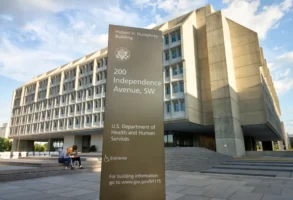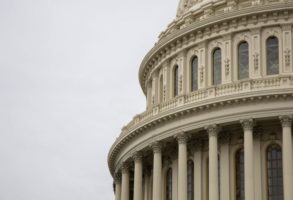Published March 5, 2015
The Weekly Standard - March 9, 2015 issue
Few people expect much to happen on health care in the 114th Congress, certainly not President Obama. He plans to continue bending and twisting his interpretation of Obamacare’s many complex provisions as necessary to keep it afloat and to avoid dealing at all with opposition to the law among the public or the Republicans who now run Congress.
But King v. Burwell could upend the president’s plans. That’s the case, now on the Supreme Court’s docket, contesting the legality of subsidy payments to people in states that chose not to build their own Obamacare insurance exchanges. A decision against the government’s provision of the subsidies would undermine the law in the 37 affected states and, in the process, disrupt insurance for millions of people who signed up for coverage on the assumption that the subsidies would be available to them.
The blame for the mess that would surely ensue should rightfully fall on the Obama administration and Democrats in Congress. Congressional Democrats wrote the statute on their own, and the administration has enforced it. If the Court rules that the statute was written carelessly and enforced lawlessly, Democrats will have no one to blame but themselves.
But don’t expect them to take responsibility. If the administration loses the case, Obama is sure to denounce the ruling as an ideological power grab by the Court and then to demand that Republicans in Congress fix it, with no strings attached. Further, the administration will almost certainly develop a workaround for the states, allowing them to designate and use the federal exchange as if it had been built by the states. This would give administration officials a justification to continue paying federal subsidies in the states agreeing to the workaround, even if it were legally questionable.
It will be tempting, under these circumstances, for Republicans in Congress to stand back and watch events unfold rather than step into the breach with a plan of action. After all, they had nothing to do with writing or implementing Obamacare, so why should they have to offer a solution? Moreover, many conservatives will see the loss of federal subsidies as the first step in the full unwinding of the law. Why on earth would the GOP want to step in?
What exactly would happen in the aftermath of a Court ruling in favor of the plaintiffs is certainly unpredictable. It is possible, perhaps, that the public would be so disgusted with the lawlessness of the administration that opinion would swing in the GOP’s favor, tempting the party to do nothing while the administration is forced to scramble to pick up the pieces. But it seems more likely that a combination of the president demanding a simple fix and public concern about the fate of the several million people with disrupted insurance arrangements in the affected states would put at least some of the pressure for a fix on Republicans.
And the pressure could be especially acute on Republican governors in the affected states. They are the ones who will be presiding over insurance markets that could unravel entirely. If the president offers them an easy route to building a “state” exchange, and there is no prospect of an alternative coming from Congress, then it seems probable that many Republican leaders in these states will succumb to the pressure coming from both the administration and the public to fix the mess by adopting state exchanges. Several Republican governors have stated that they would not accept such a “solution,” but as we have seen with the lure of Obamacare’s Medicaid expansion, the pressure to do so could ultimately be hard to resist.
If events were to unfold this way, it would, of course, be politically disastrous for the GOP. But it would also mean the party had missed a huge opportunity. Obamacare is being fully implemented nationwide. There will be some 10 or 11 million people getting insurance through the exchanges, and another several million more getting covered through Medicaid. The longer implementation proceeds, the harder it will be to undo. If the Court strikes a significant blow to the law, it will be perhaps the last opportunity for Republicans to begin moving health care policy in a very different direction in the Obama years. Despite the political risks, the GOP should recognize and take advantage of such an opportunity.
A decision to invalidate the federal subsidies in states that chose not to build their own exchanges would provide a natural opening for offering these states an alternative to the Obamacare framework. This need not take on every objectionable provision in Obamacare—full repeal could only come under the next president. But it should offer to the states a market-driven alternative to that law’s top-down regulatory approach. It should offer an off-ramp from Obamacare that advances the cause of repeal and replacement while addressing the particular pressures created by a favorable King decision.
The key pieces of such an approach can be found in proposals offered both in Congress (like the plan sponsored by Senators Richard Burr and Orrin Hatch and Rep. Fred Upton) and outside of it (like the plan put together by the 2017 Project, a conservative nonprofit). Those plans propose to replace the Obamacare subsidy structure with a simplified, age-adjusted tax credit to allow households without access to employer coverage to buy insurance in the private market.
Such credits should form the foundation of the GOP response to a King decision. Republicans should advance legislation that effectively allows states to opt out of Obamacare’s entire regulatory and subsidy structure and into a far simpler and more flexible system that points in the opposite direction: toward a competitive, consumer-centered marketplace for coverage. In that system, state residents not offered health coverage by their employers could receive a federally funded, age-based credit for the purchase of any state-approved health-insurance product—including those bought outside of any exchange and regardless of whether they meet Obamacare’s coverage requirements. Anyone who remained continuously insured in this system would be shielded from higher premiums or exclusion from coverage based on a preexisting condition, giving consumers a strong incentive to buy coverage without a mandate to do so. And all other insurance regulation would be up to the states.
A major difference between the Burr-Hatch-Upton and the 2017 Project plans is that Burr-Hatch-Upton ties the tax credits to the incomes of the households using them, and phases them out altogether for families with incomes above three times the federal poverty line. The 2017 Project proposal provides its credits to all households outside the employer-sponsored insurance system, regardless of their incomes. This is the better approach, as the tax credit is designed to balance the large tax break associated with job-based coverage. Under Obama-care and Burr-Hatch-Upton, middle-class families that do not have an employer plan get no additional help with their insurance premiums. But a potentially significant selling point of a GOP-sponsored response to the King case is that middle-class families in states opting into the alternative structure would get far more help toward their premium payments than from Obamacare. Moreover, in states that did not opt for the Medicaid expansion, families with incomes above Medicaid eligibility but below the federal poverty line would get a tax credit too—something they don’t get under Obamacare.
States that opted out of Obamacare and into the alternative avenue would also regain control over the insurance plans offered in their markets. States would determine the manner by which consumers would identify and select their insurance plans. In doing so, states could use an exchange-like structure if they wanted to, but they would not be required to do so.
The protection for people who remained continuously covered would both offer security to Americans with preexisting conditions and provide a powerful incentive for individuals to use their tax credits to get at least catastrophic insurance, and thus retain their status as continuously insured. Insurers would have an enormous incentive to offer plans with premiums set exactly equal to the credit, so that people could purchase them for no up-front costs out of pocket—essentially allowing them to obtain catastrophic coverage for the same price they now pay to be uninsured: nothing. The Burr-Hatch-Upton plan would go one step further and allow states to provide default insurance to anyone who neglected to select a plan with his tax credit—again, with premiums set exactly equal to the credit to ensure the person owed no additional premium. This would leave people with essentially no reason to remain uninsured while helping create a robust, competitive market for coverage.
A final important component of a GOP-drafted state opt-out of Obamacare would be Medicaid flexibility. Under Obama-care, the Medicaid expansion and the exchange subsidies are disconnected programs. The GOP should offer governors the opportunity to reform their Medicaid programs, without the need for a federal waiver, so that Medicaid becomes a supplement to the federal tax credit for the lower-income population. This would allow Medicaid-eligible families to enroll in the same health insurance plans as those with slightly higher incomes, and they could keep these plans as they found better and higher-paying jobs. Most important, these plans would provide access to networks of hospitals and physicians that today do not typically serve many Medicaid patients.
This is, of course, just one form that a state-opt out from Obamacare might take. Some conservative health care experts have proposed another, which would provide funding to the states, in the form of a block grant, instead of to individuals in the form of tax credits. Their model is the children’s health insurance program (CHIP), created in 1997. CHIP provides fixed allotments to the states for the purpose of expanding health insurance enrollment among low-income children. States have substantial flexibility in designing the program within broad federal rules. A similar funding stream could be made available to the states affected by a decision in favor of the plaintiffs in the King case. The funding would replace the subsidies to individuals invalidated by such a ruling.
A block grant approach has some appeal. It eliminates the need to specify the important but knotty and sometimes controversial details of how to implement a tax credit for insurance, because states would be in charge of designing the subsidy programs, not the federal government. In addition, a block grant also provides budgetary certainty, as federal funding would be limited to the amounts provided in the allotments to the states.
The key drawback of this approach is that it could easily lead to a series of bureaucratic state solutions replacing the bureaucratic federal solution of Obamacare. CHIP has not ushered in an era of creative market-based solutions for children’s health insurance. Instead, it has largely become an add-on to the heavily regulated state Medicaid programs. A new funding stream for coverage expansion could easily lead to the same disappointing outcome.
Still, what’s needed now more than anything else is a workable conservative solution in the event of a decision in favor of the plaintiffs in King. A new federal allotment to the states might have some drawbacks compared with a credit approach with minimal regulation, but it would be far better than no response at all. A strictly time-limited extension or substitution of existing subsidies, like the sort proposed by Senator Ben Sasse this month, could also be constructive as a first step if Congress were not inclined to more aggressive action immediately.
The Obama administration would find both approaches unacceptable, and would surely fight against either one tenaciously. But that’s not a reason for the GOP to abandon drafting a plan. The president will demand that Republicans pass a clean “fix” to Obamacare to authorize the payment of federal subsidies in all exchanges, whether state- or federally built—insisting that the party that wants to repeal the law should instead fix it and effectively sign its name to it. And he will demand that this fix be permanent and unconditional. Such a radical set of demands should obviously be a nonstarter for Republicans. But the GOP will be in a much better position to resist, to strengthen the hand of Republican governors, and to force serious negotiations toward rolling back Obamacare if it has offered a credible alternative that would broaden insurance enrollment and improve the health system without the left’s authoritarian central-planning approach to health care. The opt-out would meet that test—addressing the specific pressures states would face if King is decided for the plaintiffs and advancing the cause of a conservative alternative to Obamacare.
King v. Burwell could be an enormous opportunity for those who want to replace Obamacare with a consumer-driven health reform that would offer flexibility rather than rigidity and encourage the development of a functional and sustainable market for affordable coverage and care. But it will only offer such an opportunity if conservatives are prepared to give the states a serious alternative arrangement. If they fail to prepare, a decision for the plaintiffs could easily prove as perilous for conservatives as it would be for the administration.
James C. Capretta is a senior fellow at the Ethics and Public Policy Center and a visiting fellow at the American Enterprise Institute. Yuval Levin is a contributing editor to The Weekly Standard, Hertog fellow at the Ethics and Public Policy Center, and editor of National Affairs.





